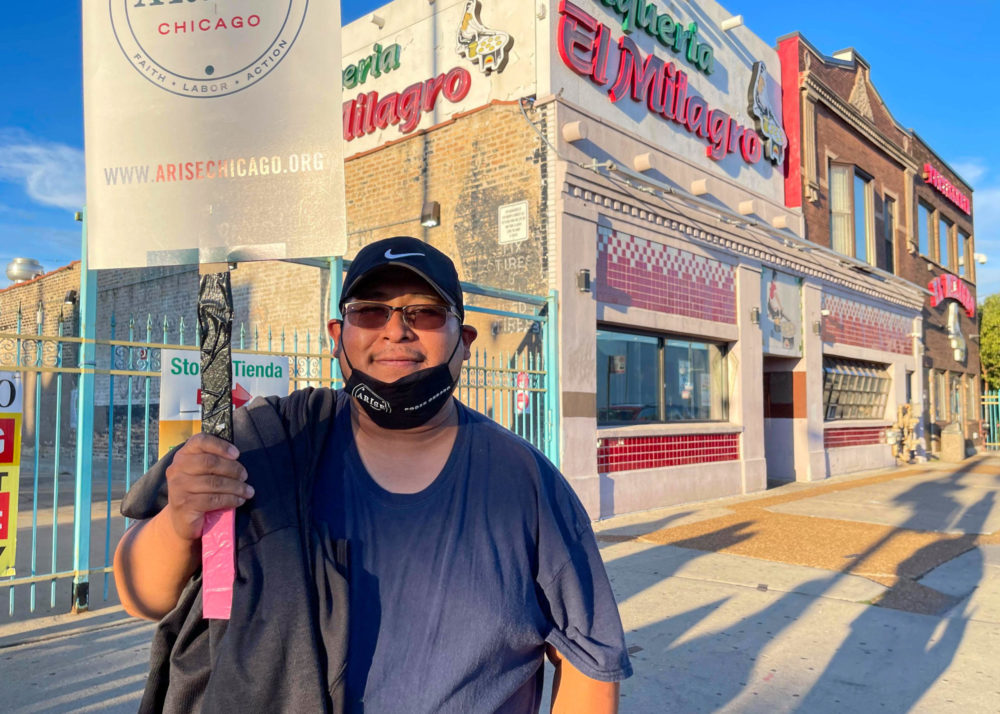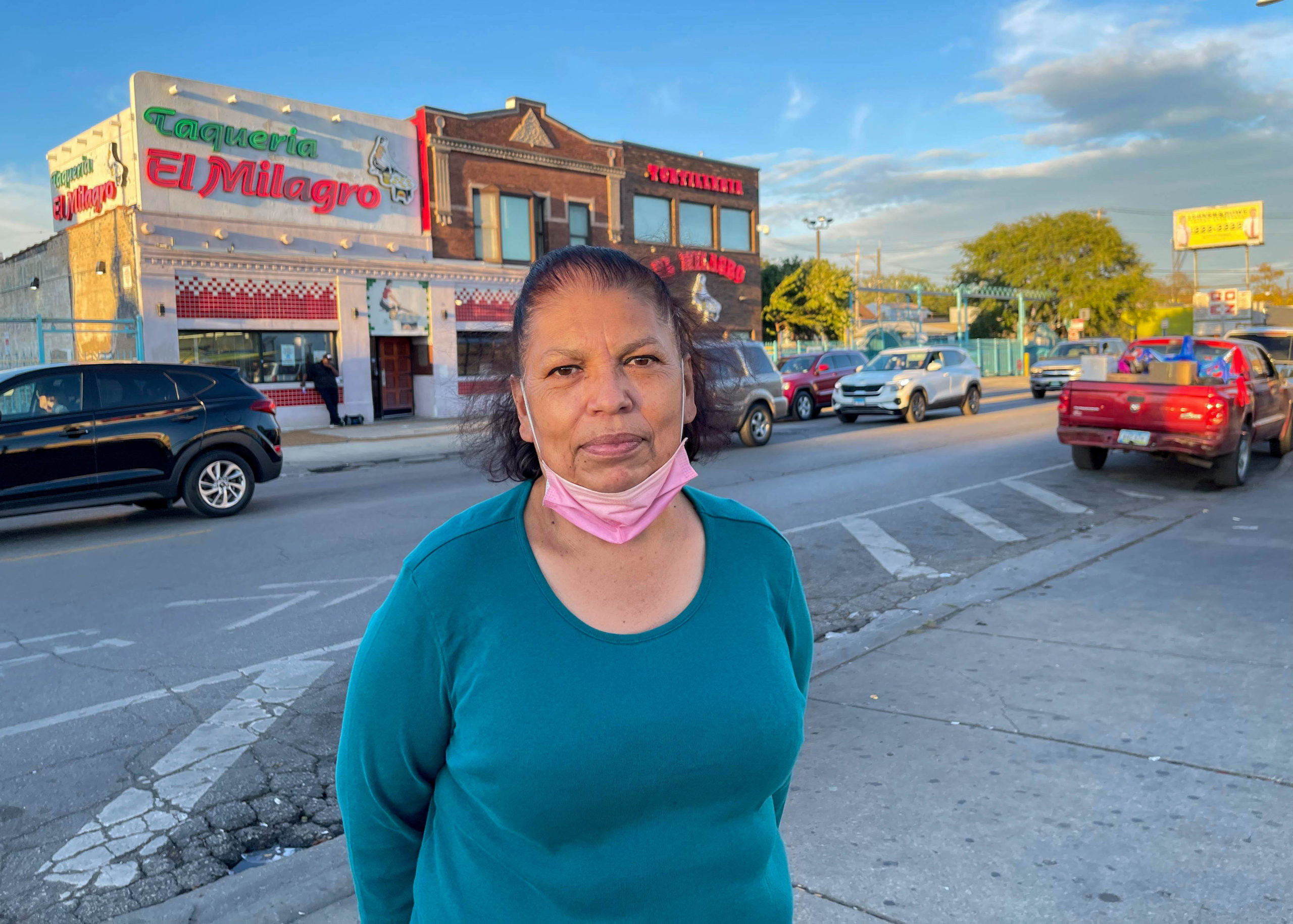Last week, dozens of employees walked off the job in two of El Milagro’s tortilla plants, citing low wages, high turnover, and a toxic work culture that has contributed to a nationwide shortage of the popular tortilla.
Rumors of poor working conditions began circulating in early 2020 when, at the height of the pandemic, El Milagro management not only failed to provide Personal Protective Equipment (PPE) to their employees, but allegedly discouraged them from bringing face coverings from home.
Five employees died of coronavirus complications, among them Roberto Escobar, who workers say proactively brought his own face mask into the workplace, but was reprimanded for using it. While El Milagro closed down for two weeks after his death, workers say it was due to public pressure and that few safety measures were implemented. They also said not enough support was offered to the deceased nor were workers properly notified of at least eighty-five confirmed cases of COVID-19—they found out through word of mouth.
Hours before the work stoppage on September 23, former employee Rosalba Durán went to the human resources office inside El Milagro headquarters on 26th Street to pick up her last paycheck. To her surprise, she found the place closed. “They never close,” she said. “They must know something’s up.”
Close to 5pm that day, workers nervously gathered by La Villita Park behind the Discount Mall. Organizers from the workers’ rights organization Arise Chicago helped them craft their demands and take ownership of their voice. The workers marched across the parking lot, crossed 26th St., and formed a picket line in front of El Milagro’s flagship location, chanting, “The people united will never be defeated!” ¡Milagro, escucha, estamos en la lucha!” (Milagro, listen up, we are in the fight!) and “¡No es El Milagro, es el maltrato!” (It is not El Milagro, it is maltreatment!).
It was peak rush hour. Cars and semi-trucks honked their horns in support of the workers. Arriving customers did not walk inside El Milagro and instead stood on the curb listening to the workers’ grievances.
“The working temperatures go above ninety degrees, and instead of addressing the issue, management has sent anti-union [representatives] who have discouraged workers,” said Pedro Manzanares, an El Milagro employee and La Villita resident. “Not all of us are here, many people stayed behind in fear.”
He added that workers feel as if they’re being worked like machines. “The machines are so fast that our hands are not quick enough to keep up,” he said. “We try to do our best, but there comes a point where you say, ‘ya basta’ (enough is enough), I can’t take it anymore. My arms, my back, my waist, are in pain.”
Jacinta Castro worked at El Milagro since 1979. But while she has been supportive of her co-workers, has signed letters, and attended the protest, she said she resigned because she was fed up with the mismanagement of the company under managers Alex Arevalo and Hortensia Calderón.
Castro said she noticed the work culture began to shift after the death of the founder, Raúl López, in the 1990s, who she said was hardworking and well respected. She agreed that El Milagro overworks employees and has herself witnessed co-workers who have repeatedly fallen or hurt themselves and were expected to return to work.

El Milagro owns four plants and five restaurants with more than 600 employees in Illinois, according to ten-year employee Martin Salas, and they own plants in other states.
Outside El Milagro, workers complained about the lack of pay raises, saying that new employees are often getting paid a higher wage than people who have been there for years, even decades. Not only that, said worker Luis Oliva, but they have to train the new workers, who many times choose to leave after they’ve been trained once they realize how exhausting the production line is. “They want to make us work seven days straight,” Oliva said.
After the walkout, many employees returned to their workplace at the plant on 2140 S. Western and management locked them out for a few hours until the police arrived and escorted employees to pick up their belongings.
“Even if you don’t have a union, it’s legal to organize yourselves through worker committees and set demands,” said Jorge Mújica, a strategist at Arise Chicago. “The company is required to sit down with you. They don’t have to negotiate a contract until [the workers] have a majority vote, but they have to sit down and talk.”
El Milagro workers’ demands call for implementing a wage scale based on seniority and qualifications, an end to sexual harassment that some women employees said was an ongoing problem, and reducing the work flow back to normal levels.
They seek a response from management by September 29 or, as they chanted, “Milagro, we’ll be back!”
Jacqueline Serrato is the editor-in-chief of the Weekly. She contributed to Best of the South Side 2021 as the neighborhood captain of La Villita, Pilsen, and Back of the Yards.


Employees, managers, owners and investors are People who should give one another respect and courtesy for basic human rights in order to produce full expectations of what a job requires an employee in all aspects to accomplish successfully. When there is no respect for the employee, decent people do not want to pay for a morally worthless product from El Milagro.